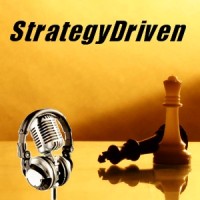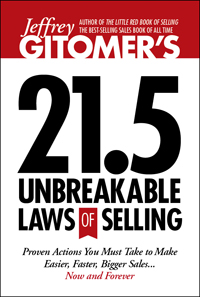Do your people WANT to listen to you?
I’m at a corporate conference about to give my 90-minute, customized, personalized talk. I spent hours preparing it – as I do all my talks – and I’ve spent the last 20 years improving my speaking, presentation, and performance skills.
I’m not just a speaker. I’m a student speaker.
Anyway, before my talk, the two corporate leaders of a multi-billion-dollar company addressed the gathered 200 in the audience. The attendees are eager to hear their words and looking for (hoping for) inspiration and direction.
Unfortunately, they didn’t get either.
The leaders, although smart and capable, are HORRIBLE presenters. I guess they don’t consider the skill important enough to master. Not good. They have a responsibility to be GREAT. Their people are counting on it.
REALITY QUESTION: How’s your leader? How are his or her presentation skills? REALITY QUESTION: How good of a presenter are you?
REALITY QUESTION: Do your people, your audience, and your customer WANT to listen to you? Or do they HAVE to listen to you?
REALITY QUESTION: When you’re giving a talk or making a presentation, how compelling is your message?
REALITY QUESTION: Are you afraid to give a talk? NO – you’re just unprepared. Or not prepared enough to own the talk. NOTE WELL: You can never own the prospect, the customer, or the audience if you don’t own the presentation.
When you give a talk or make a presentation, make certain you understand:
- What your engagement points are.
- How you want the audience to walk away feeling.
- What you want the audience to do tomorrow?
BIG SECRET: Think of it as a performance, not a presentation.
BIGGER SECRET: Never stand behind a podium. Get down off the platform and walk around.
BIGGEST SECRET: Learn to perform by singing Karaoke. (I did.)
If you’re giving a speech (and you should be in order to be perceived as a leader), or making a presentation, there are some strategies and elements you must employ in order to ensure maximum attraction, engagement, connection, and maybe even sale…
1. Use genuine humor. Start with a comment or story that leads to BOTH laughter and learning. Go on YouTube and look at my videos. They will provide answers tohumor and education. At the end of humor is the height of listening.
2. Ask poignant questions. Ask people what they’re hoping for. Make the people you’re addressing THINK. Especially about themselves.
3. Ask intellectual questions. Talk about their experiences and yours. Show wisdom. Ask about subject matter knowledge.
4. Tell a story that relates to you AND them. Real life experiences are both relatable and create incentive to take action. NOTE WELL: Facts and figures are forgotten. Stories are retold.
5. Customization based on their real world. The people you present to only care about themselves and their issues. Focus on that.
6. Incorporate their philosophy, mission, brand, and theme. The more you do, the more respect you will gain.
7. Give 5-10 major points they can walk away with and use immediately. Give ideas they canuse. That’s what preparation is all about.
8. Have simple slides. Make certain your slides are easy to follow, fun, and readable. And there should only be one point per slide.
9. Very little talk about you. Not who you are. Rather, what you do and how you can help them.
9.5 End with emotion. (Maybe even ask for the sale.) Family or other concepts the audience can relate to and identify with.
At the end of your presentation/performance…
- You want the audience to react and respond. Buy, do better, do new things, applaud, or STAND and applaud. The quality of your talk will be the determining factor.
- You want the audience (or the prospect or the customer) to remember you and the moment. The only way that happens is if you perform remarkably.
- You want outcome and buzz as a result of your words, ideas, value, and inspiration. You seek a favorable outcome. So does the person receiving your message. Was it ho-hum, or worth talking about? Was it value driven to a point of taking action, or was it without punch or inspiration?
The ultimate goal is to have impact over time. If you are able to follow-up by getting people to subscribe to your blog or ezine, you can actually document and measure the success of your ideas, product, or service. And that feedback can drive your success if you pay attention to it.
Want a report card? Video your presentation and watch it twice. Once for the pain, and once to take self-improvement notes. The best and toughest presentation skill lesson in the world is the one you give yourself.
Want a path to success? Commit to personal presentation skills improvement. Take a Dale Carnegie course and join Toastmasters. Give talks at your local civic association. Not only are sales leads there, it’s also a relaxed, learning opportunity. Take it.
Reprinted with permission from Jeffrey H. Gitomer and Buy Gitomer.
About the Author


 Mark Ingwer PhD is a consumer psychologist and the managing partner of
Mark Ingwer PhD is a consumer psychologist and the managing partner of  StrategyDriven Podcasts focus on the tools and techniques executives and managers can use to improve their organization’s alignment and accountability to ultimately achieve superior results. These podcasts elaborate on the best practice and warning flag articles on the StrategyDriven website.
StrategyDriven Podcasts focus on the tools and techniques executives and managers can use to improve their organization’s alignment and accountability to ultimately achieve superior results. These podcasts elaborate on the best practice and warning flag articles on the StrategyDriven website.

 Kai Hammerich received his M.B.A. from Northwestern University, Kellogg Graduate School of Management and his M.Sc. in economics from the University of Aarhus, Denmark. Based in London, he is a consultant with the international search firm Russell Reynolds Associates. Kai has conducted numerous CEO and board-level assignments for major global companies. He has in-depth experience advising clients on how to align a company’s talent portfolio with its overall business strategy and company culture. Kai has been nominated by BusinessWeek as one of the most influential search experts worldwide.
Kai Hammerich received his M.B.A. from Northwestern University, Kellogg Graduate School of Management and his M.Sc. in economics from the University of Aarhus, Denmark. Based in London, he is a consultant with the international search firm Russell Reynolds Associates. Kai has conducted numerous CEO and board-level assignments for major global companies. He has in-depth experience advising clients on how to align a company’s talent portfolio with its overall business strategy and company culture. Kai has been nominated by BusinessWeek as one of the most influential search experts worldwide. Richard D. Lewis is a renowned British linguist and founder of Richard Lewis Communications – a language school for executives as well as a company that advises on cross-cultural business issues. He is the creator of the Lewis Model of Cross-Cultural Communication and author of many books including the bestselling When Cultures Collide: Leading Across Cultures.
Richard D. Lewis is a renowned British linguist and founder of Richard Lewis Communications – a language school for executives as well as a company that advises on cross-cultural business issues. He is the creator of the Lewis Model of Cross-Cultural Communication and author of many books including the bestselling When Cultures Collide: Leading Across Cultures. Performance measures record specified outcomes achieved either at a specified time or within a defined interval and so, by their very nature, are time dependent. Consequently, a performance measure alters the behaviors of those being monitored not only in relationship to what is being monitored but also to when the outcome is being monitored.
Performance measures record specified outcomes achieved either at a specified time or within a defined interval and so, by their very nature, are time dependent. Consequently, a performance measure alters the behaviors of those being monitored not only in relationship to what is being monitored but also to when the outcome is being monitored.